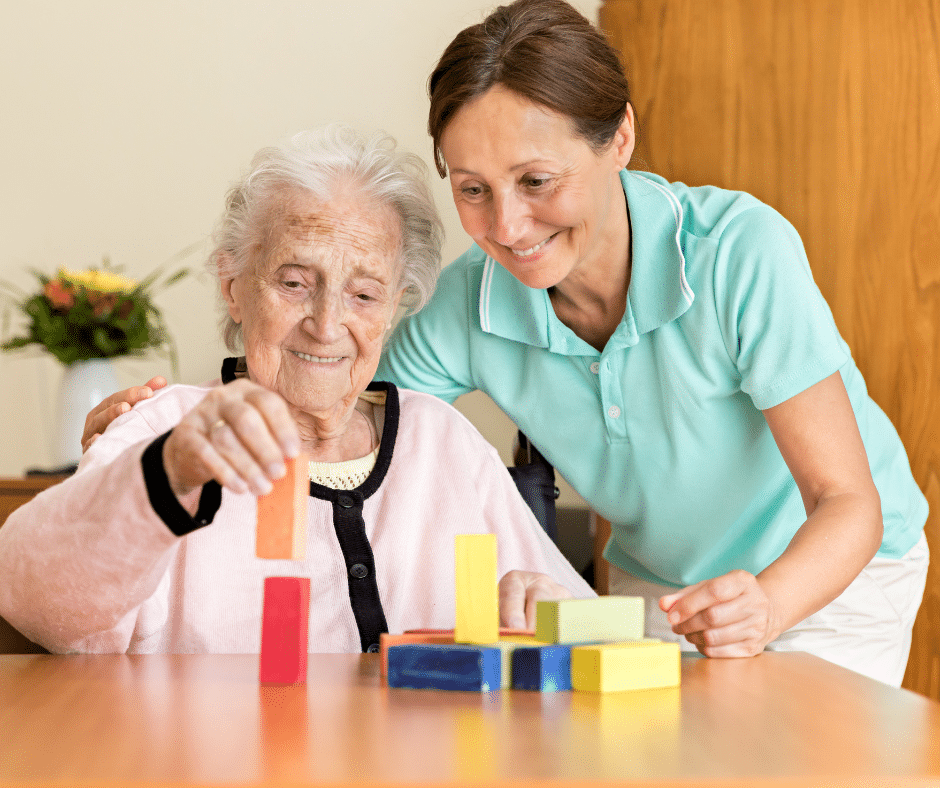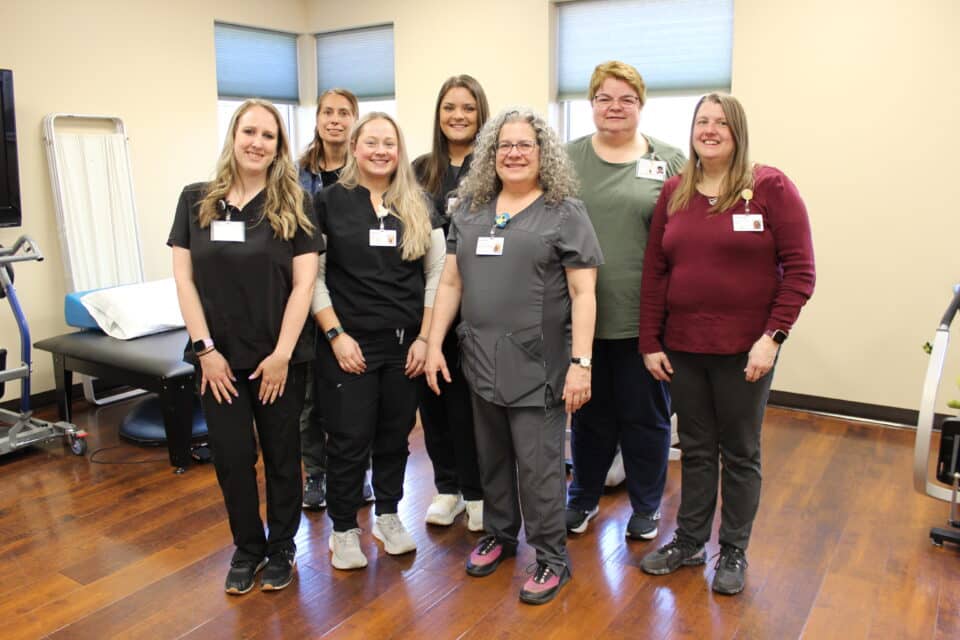
During April, we celebrate Occupational Therapy Month and all of the ways it helps those with certain impairments live happier and more meaningful lives. Occupational therapy (OT) assists countless patients in multiple settings, both young and old, but for older adults, OT provides benefits that are invaluable to their quality of life, especially as they continue to age.
What is Occupational Therapy?
Occupational therapy (OT) is a specialized healthcare field that helps a person maintain or regain skills needed for daily living, especially after being diagnosed with a disease or injury that impacts their physical, cognitive and other abilities. As our bodies age, those abilities may be impacted as well. Older adults may experience decreased mobility, reduced cognition, problems with their vision and hearing and other difficulties. This can make everyday tasks that once seemed simple increasingly difficult. This could include setting the table, getting dressed, or even feeding themselves.
Based on a person’s limitations, an occupational therapist will evaluate their needs and devise a treatment plan best aimed at helping the individual maintain or redevelop their abilities. During a typical session, patients will do activities that target fine, gross, visual motor skills and many more. Some popular activities among seniors during occupational therapy sessions include the following:
- Cooking and baking
- Arts and crafts
- Gardening
- Brain-teaser games
- Musical chairs
- Dancing
Benefits for Seniors
Helps Memory
Every senior experiences some degree of memory loss, but some have a more advanced form like dementia or Alzheimer’s disease. Occupational therapy can give these older adults a brain boost. The therapist might play memory games with the patient or do puzzles, crosswords and other games. This can help slow down cognitive decline and keep the mind sharp. They may also put signs around their homes to prevent the older adult from wandering.
Maintains Independence
Occupational therapists may also introduce assistive aids around a patient’s home, helping an older adult maintain their independence and overcome daily challenges. For example, a senior who has trouble standing in the shower may have grab bars, or another with Parkinson’s disease could use weighted utensils to control tremors so they can continue to feed themselves without assistance.
Fall Prevention
One of the biggest concerns with older adults is injuries with falling. According to the Centers for Disease Control, falls are the leading cause of injury in adults 65 and older. Over 14 million, or one in 4 older adults report falling every year in the U.S. Occupational therapists can teach seniors techniques to prevent falls as well as strength and balance exercises.
Promotes a Better Social Life
Lastly, when seniors participate in a group occupational therapy session, like what Loretto offers at PACE CNY Sally Coyne Center, it helps promote a thriving social life. The Occupational Therapy (OT) Team at PACE CNY helps participants regain and develop important skills needed to continue living independent lives, all while interacting in a fun, outgoing group setting.
Visit the PACE CNY website to learn more.

